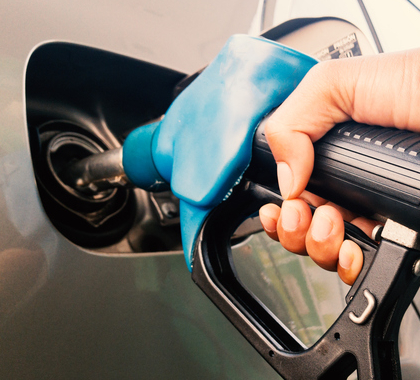If the definition of insanity is repeatedly doing the same thing but expecting different results, many Illinois lawmakers are downright certifiable. For decades, Illinois legislators have wreaked economic havoc by increasing spending and raising taxes, creating a budget shortfall of epic proportions, and utterly ruining the state’s credit rating. In response, Illinois residents and businesses have fled the state in droves. So what are Illinois lawmakers considering to address the fiscal nightmare they’ve created? Higher taxes, of course.
How bad are the taxes in Illinois? Homeowners in Illinois pay the highest median property tax rate in the nation, with various agencies and governmental bodies imposing a combined average rate of 2.67 percent, according to a CoreLogic analysis of real estate property taxes nationwide. The Prairie State also mandates the seventh-highest combined state and local sales tax rate, according to the Tax Foundation.
Not content to stick to traditional taxes, Illinois’ sin taxes are also prevalent and burdensome. It has the fourth-highest tax on cigarettes among Midwestern states. Moreover, Illinois governmental bodies have imposed outlandish taxes on soda and plastic bags, all of which have been wildly unpopular and have failed to narrow the state’s mammoth budget deficit.
Altogether, Illinois legislators have managed to create the highest tax burden in the United States. Currently, the combined state and local tax burden in Illinois ranked dead last in severity according to a March report by WalletHub. The average effective state and local tax rate on an Illinois household at the median U.S. income is a whopping 14.9 percent.
Despite this infamous distinction, and the growing exodus of people from the state, the Illinois General Assembly is considering digging the tax hole even deeper by moving the state away from a flat tax system to a progressive tax system. Proponents say the new tax regime would move the tax burden away from low- and middle-income taxpayers to higher-income households, who they argue are not paying their “fair share.”
At present, the Illinois Constitution requires a flat tax. A change to a progressive system would require a constitutional amendment approved by a voter referendum and three-fifths of the state legislature.
Unfortunately, the implementation of a progressive tax in Illinois may do more harm than good. Progressive tax systems produce more volatility in annual tax revenues than flat tax systems, making budgeting less reliable. Furthermore, abandoning the flat tax could lead to even higher taxes for many middle-income earners in Illinois.
Taxpayers in Illinois never seem to get a break. Besides the outrageous state sales and income tax rates, Illinois also levies a massive fuel tax on drivers. Illinois’ 34-cents-per-gallon fuel tax ranked 11th-highest in 2017, yet this wasn’t high enough for tax-and-spend Illinois legislators. One plan, introduced by the Illinois Economic Policy Institute (IEPI) in a House Hearing in early April, would dramatically increase the state’s fuel taxes and vehicle fees. IEPI recommends more than doubling the state’s motor fuel tax—from 34 cents to as high as a dollar. This would make Illinois’ fuel tax the highest in the nation. (Pennsylvania’s 58-cents-per-gallon tax was the highest in America in 2017.
One of the main reasons Illinois’ fuel taxes are among the highest in the nation is because Illinois is one of only seven states that also applies a sales tax to gasoline purchases. As recently as 2011, Illinoisans paid the third-highest combined local, state, and federal gas taxes in the nation.
Making matters worse, in recent years, the rise of fuel-efficient cars has decreased motor-fuel-tax coffers and disproportionately shifted the burden to low-income drivers, a group that typically owns older, less-fuel-efficient vehicles.
All Illinois residents already pay more than their “fair share” in taxes to a state that is headed toward fiscal Armageddon. It is not wise (or fair) for irresponsible Illinois lawmakers to dig their hands any deeper into the cash-strapped pockets of the state’s taxpayers. Changing Illinois’ tax system from a flat tax to a progressive tax would impose a significant increase in taxes on the state’s middle-income families and a gas tax hike would raise prices on goods and services throughout the economy, not just on gasoline, because virtually all consumer goods are transported using gasoline-powered transportation. Businesses will simply pass the added costs on to consumers.
Instead of imposing more and higher taxes on Illinois’ beleaguered residents, legislators ought to stop the insanity once and for all by instead following the trail blazed by states that have embraced lower taxes, fewer regulations, and business-friendly laws, including Illinois’ neighbors to the north, Michigan and Wisconsin.





